Seven Vidi grants awarded to UMC Utrecht
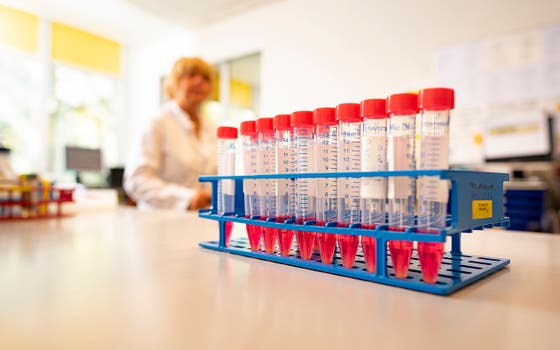
Seven researchers from the UMC Utrecht have been awarded a Vidi grant, which allows them to develop their own innovative line of research and set up a research group the next five years. The Netherlands Organisation for Scientific Research (NWO) announced this on Wednesday, July 14.
The NWO has awarded Vidi funding of 800,000 euros to a total of 78 senior researchers. Together with Veni and Vici, Vidi is part of NWO's Innovation Impulse program. The research projects of the seven Vidi laureates from the UMC Utrecht are the following:
The importance of metabolism in (cancer) stem cells
Maria Rodriguez Colman, Laboratories, Pharmacy and Biomedical Genetics division, UMC Utrecht
Assistant professor Maria Rodriguez Colman receives the Vidi grant to research the role of metabolism in stem cell regulation and differentiation in healthy and diseased intestinal tissue, primarily in intestinal cancer. “In my group we seek to understand how metabolism regulates the intestinal function and in particular how it contributes to the development of intestinal tumors and resistance to chemotherapy. Before this, I traveled all over the world to follow my passion for research. At the Center for Molecular Medicine in the UMC Utrecht, I found the right place to establish my research on metabolism, stem cells and cancer. This grant will allow me to further expand my team and together make important contributions to the fundamental understanding of cancer and metabolism,” says Maria.
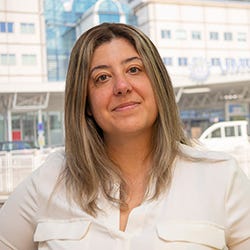
Colon cancer: when good turns into bad
Hugo Snippert, Laboratories, Pharmacy and Biomedical Genetics division, UMC Utrecht
With the Vidi grant, associate professor Hugo Snippert, Oncode researcher at the Center for Molecular Medicine at the UMC Utrecht, will investigate how prematurely metastatic colon cancers develop. Better understanding, recognition and risk assessment of early metastasis ensure that each patient can receive a more tailored treatment. Earlier this month, the article appeared in Nature Genetics in which Hugo and his research group mapped out the rate and pattern of genetic changes in tumors for the first time.
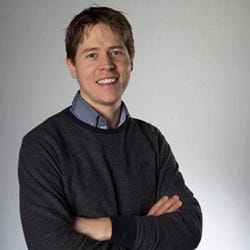
Repair of solidly packed DNA
Aniek Janssen, Laboratories, Pharmacy and Biomedical Genetics division, UMC Utrecht
Assistant professor Aniek Janssen will use the Vidi grant to understand how different pieces of DNA are repaired. Previously Aniek received an ERC Starting Grant (in Durch) for her research on how our cells protect themselves from DNA damage. Aniek: “This grant allows my research group to start growing and doing more detailed research in the coming years. It will ultimately contribute to a better understanding of how cancer develops.”
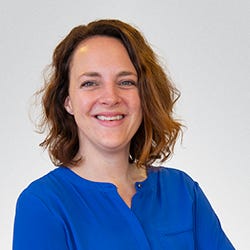
Gender differences in heart disease explained
Sanne Peters, Julius Center, UMC Utrecht
There are distinct differences between men and women when it comes to coronary heart diseases. For example, the extent to which major risk factors such as smoking and diabetes increase the risk of coronary heart disease is greater in women than in men. Women are also less frequently treated according to medical guidelines. It is unclear where these gender differences come from. This hinders the translation into clinical practice. Sanne Peters, associate professor at the Julius Center and Senior Lecturer at the George Institute, UK, uses clever epidemiological methods to find explanations for the male-female differences in heart disease. “This Vidi grant allows me to continue my research on male-female differences and, together with my research team, take important steps in preventing and treating heart disease in both men and women in the best possible way!”
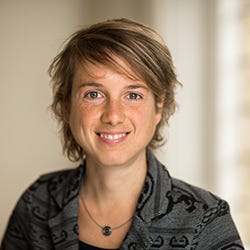
Spectro-Dynamic MRI
Alessandro Sbrizzi, Imaging and Oncology division, UMC Utrecht
Associate professor Alessando Sbrizzi is developing a new kind of MRI that allows characterizing the movement of human organs at high resolution in 3D space and time. Potential clinical applications include better musculoskeletal examinations, and diagnosis and treatment of cardiovascular diseases. About this he says: “This Vidi grant gives me the opportunity to carry out more research into a new dynamic imaging method I have devised, namely Spectro-Dynamic MRI. This is an innovation that combines mathematics, physics, machine learning and MRI. I have had promising initial results from simple phantom setups. With this, I hope to prove that Spectro-Dynamic MRI can also work in the human body.” It can lead to better diagnosis, prevention and therapy of socially relevant diseases such as cardiovascular diseases and musculoskeletal disorders.
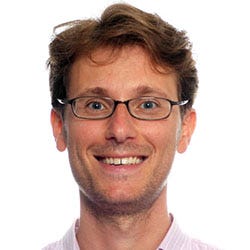
Fat is tricky: Why stress draws you towards junk food
Frank Meye, Brain division, UMC Utrecht
Stress often leads to an increased intake of fatty and sugary foods. This happens because stress on the one hand makes such food even more attractive, and on the other reduces our self-control. This cocktail of effects contributes to the current obesity problem and also plays an important role in several psychiatric disorders. Assistant professor Frank Meye researches how stress alters the strength of connections in the brain involved in decision-making, and how this can lead to impulsive eating behavior. He also investigates how this process can be reversed for the better by targeted manipulation of brain activity. Frank: “This Vidi grant plays a crucial role in further forming my research group that aims to understand how stress leads to plastic changes in the brain, and how this plays a role in multiple disease processes. It's great that this application has been granted, as our lab is very excited to take on the challenge of better understanding these important processes!”
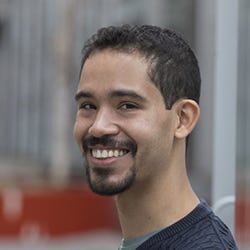
The muscle quality index: simplification of multidimensional quantitative MRI
Martijn Froeling, Imaging and Oncology division, UMC Utrecht
This project by a team including Martijn Froeling, assistant professor at the Imaging and Oncology division, links quantitative MRI measurements of muscles to muscle function. This will lead to a better evaluation of disease progression and therapy in muscle diseases. Martijn says the following about this: “We all use our muscles to function in our everyday lives. However, in patients suffering from one of the more than 600 different muscle diseases, their muscle function is impaired. This significantly reduces their quality of life. Fortunately, there are treatments under development that slow disease progression, and these should be evaluated carefully to be sure they are appropriate for the patient. Quantitative MRI parameters are sensitive to detecting changes in muscle and can provide an abundance of information. Although sensitive, they often lack specificity and are not linked to muscle function. My ambition with the project is to change the way we analyze and interpret MRI data so that it fits into the clinical care of individual patients with a wide range of muscle diseases.”
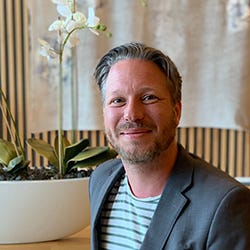
You can read the NWO press release about the Vidi awards here.
